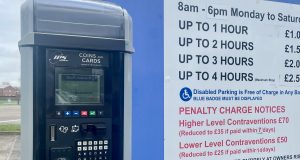More than £1.3m of outstanding debt is being recommended for write-off by South Holland District Council.
In a report to be considered by the Cabinet at its meeting on Tuesday, officers are recommending that the debts, which are made up of Council Tax, Business Rates, Housing Benefit overpayment and other sundry debt over a 15-year period, are approved for write-off.
The actual loss to the council is £578,142.30 as it collects debts which are passed on to other authorities such as the police and the drainage board.
Of the £1,349,133.35 debt, £1,167,971.57 (87 per cent) relates to one large business rate payer who went into administration in August 2020.
A Company Voluntary Arrangement (CVA) was approved and the outstanding business rates were included as a provable debt in the CVA, leaving no legal route for the council to enforce the debt.
A dividend of £3,461.80 was received by the council, leaving the remaining balance for write off.
The business became subject to formal insolvency action during the 2020/21 financial year and the resulting bad debt relates to the 2019/20 and 2020/21 financial years.
The most significant value of bad debt within the report relates to business rates, dating back to 2014/15, while the earliest financial year contained is 2007/8 and relates to an individual who owed Council Tax and has since died.
The report states: “In all cases collection options have been exhausted and there is no realistic prospect of recovery.
“All debt approved for write off will be set against existing bad debt provisions and can be resurrected in full or in part at any time should new information come to light suggesting that they might be recoverable after all.
“Efficient and well administered debt management is crucial to the council. The Debt Management Policy was re-approved by Cabinet in July 2022, and the approach to write-offs is in line with the Debt Write Off Operational Policy, previously approved by Cabinet.
In the last full financial year (2022/23) the total collectible revenue across income streams was £87million.
The write-off value in the report represents 0.67 per cent when compared to 2022/23 total revenue.
The council says the debts span several financial years, therefore the effect on each individual financial year will be lower.
As part of its accounting practice, the council makes provision for bad debt in its accounts, ensuring there is no budgetary impact.
Speaking ahead of the meeting Coun Paul Redgate, portfolio holder for Finance, Commercialism, UKSPF and Levelling Up, said: “It’s frustrating and disappointing but we can’t control how businesses operate.
“What we need to do is set out good practice and collect monies as we can do, and also ensure that if there are any problems, businesses get in contact as early as possible.
“At a time where money is tight we are all getting tighter budgets, but we also need to make sure we position ourselves in the right way and address challenges.”
 The Voice of Spalding and South Holland
The Voice of Spalding and South Holland




